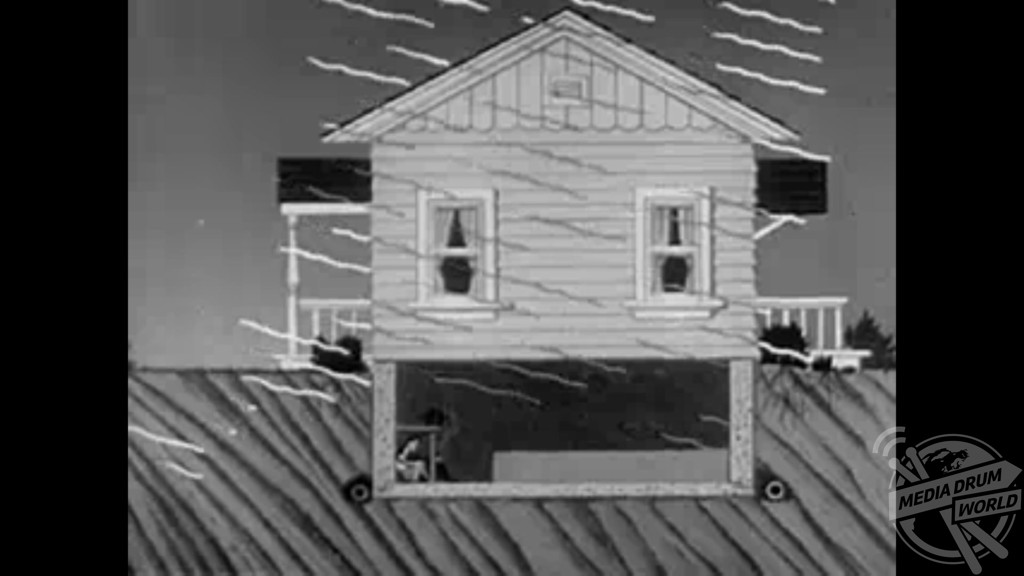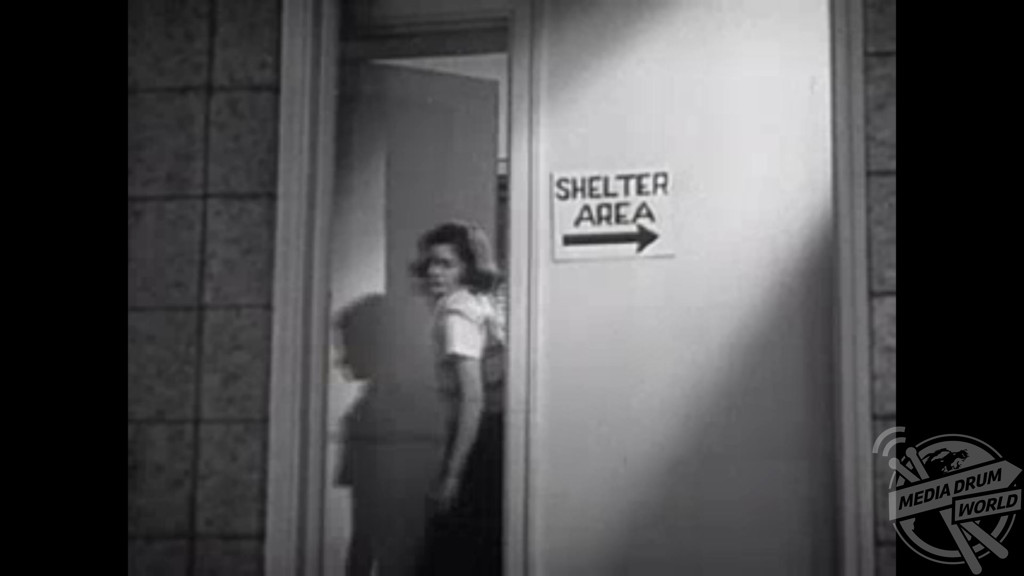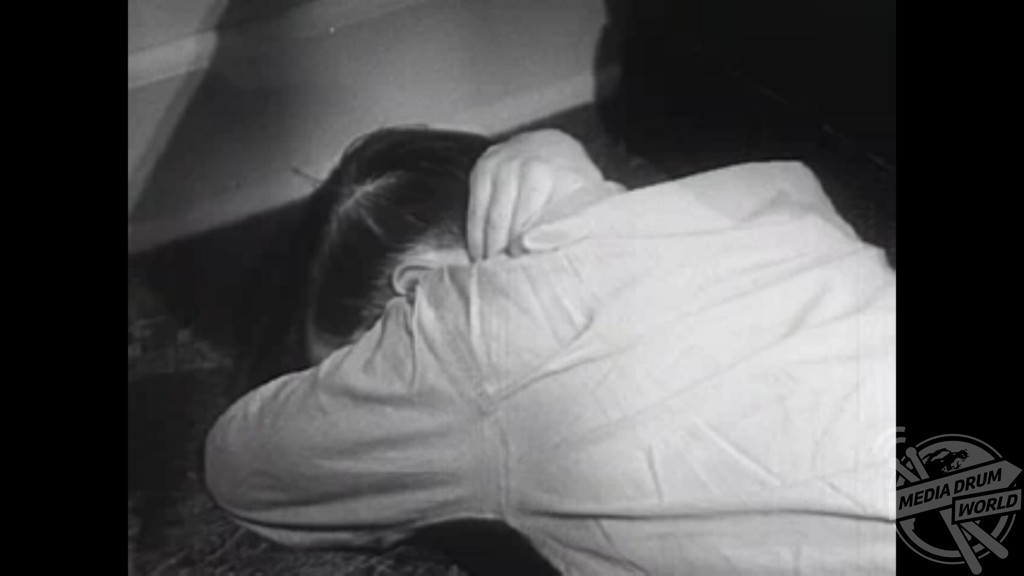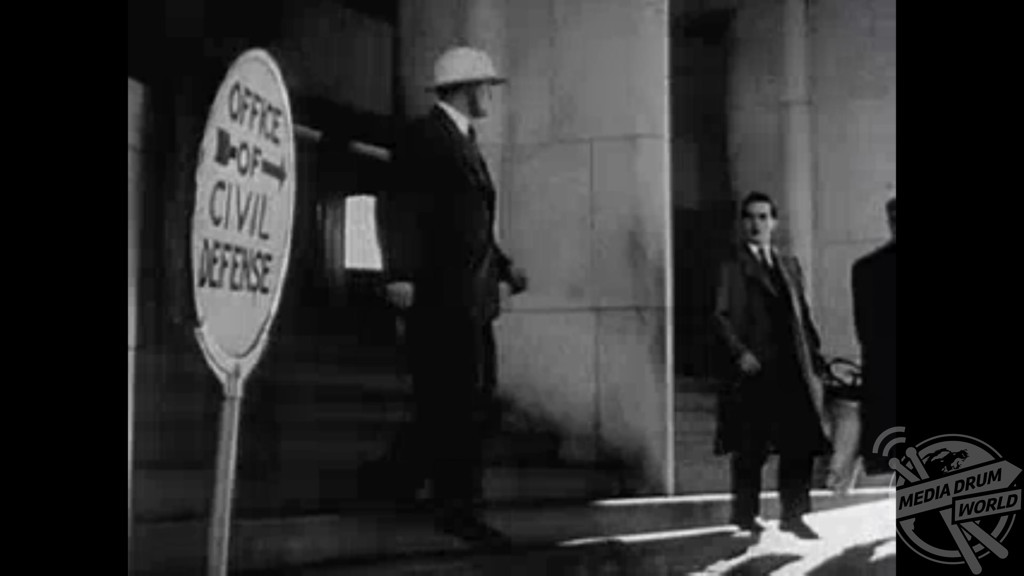By Mark McConville
FASCINATING footage has resurfaced instructing American citizens what to do in the event of an atomic bomb.
The clip, first broadcast in 1951, begins by explaining that as long as someone was inside a building they would be safe from the heat of the bomb while retreating to a basement would offer protection from the radiation.

“These children are protected,” states the narrator. “Concrete walls help stop radioactivity.
“Any wall stops the heat. The heat scorches the house but does not harm the children. Any solid is some protection – the thicker it is, the better.”

The frightening civil defence procedure film also offers advice on what to do should you get caught outdoors when a bomb explodes.
The laughable instruction to get behind any kind of wall or lie flat on the ground while protecting your eyes and neck is made further redundant by their suggestion that the risk from radiation would be over after one minute.

While it was known when this film was produced that the immediate effects of an atomic bomb were devastating the long term effects had not yet been revealed.
The atomic bombs over the Japanese cities of Hiroshima and Nagasaki in August 1945 resulted in horrific casualties and devastation.

The long-term effects of radiation exposure also increased cancer rates in the survivors. Approximately 200,000 people died in the bombings and their immediate aftermath, mainly from the explosive blast, the firestorm it sparked, and from acute radiation poisoning.
The educational video was aimed at Cold War-era primary school students but although the steps advised may have saved some lives the likelihood is that the majority of people following the instructions would have perished.






